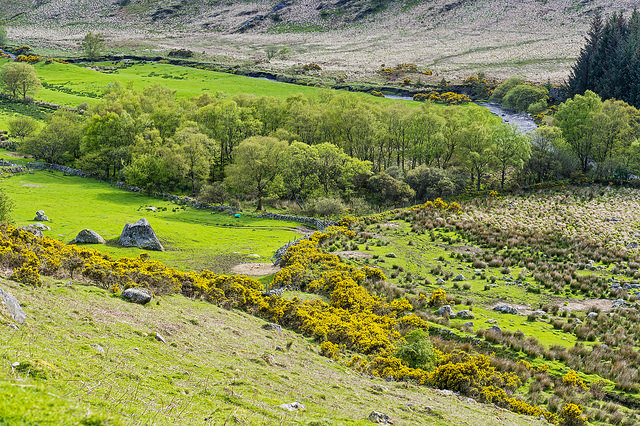Environment
The Workers’ Party recognises that global warming, brought about by man-made increases in greenhouse gases, is real and is destabilising the world’s climate with disastrous effects for most species on the planet and humanity itself. Changes in the world’s climate will mean more extreme weather events, including hotter and drier summers, flooding and rising sea-levels leading to coastal realignment. Other severe environmental issues include contamination of the air and surface waters with industrial pollutants.
The ‘carbon footprint’ of wealthy states and households is proportionally greater than poorer states and households. The system of global capitalism, which puts profit and expansion above all other concerns, is fundamentally responsible for our environmental problems. Environmentally sustainable capitalism is a contradiction in terms and, given the scale and complexity of the issues, technology is unlikely to provide all the answers. Only a society which puts human and environmental needs above those of profit can begin to deal with the serious problems we and our grandchildren will face.
The Workers’ Party supports lessening our dependence on fossil fuels through the development of wind generators, solar panels and other forms of renewable energy. The Workers’ Party believes that the conversion by large multinational firms of large tracts of arable land, especially in developing countries, away from food production towards crops for bio-fuel production is largely a regressive step and is not the solution to our fossil fuel dependence. The Workers’ Party is totally opposed to fracking. Fracking is a highly dangerous process with serious short-term and long-term consequences for the environment. The ratification of the TTIP or CETA treaties by the EU would be hugely environmentally destructive as they would relegate environmental or consumer concerns into second place behind the need for corporate profit.
Waste collection and the Environment
The Workers’ Party believes that the privatisation of our waste collection system has been a disaster. The low-income waiver has been abolished, and bin charges have sky-rocketed, illegal dumping is now rife, and wages and conditions for workers in the waste industry have been slashed.
There is a simple solution – re-introduce public waste collection.
Public Service – Private Profit: Bringing our waste collection service back into public hands is the Workers’ Party costed policy for putting local authorities back in charge of our household waste collection service. Our plan for waste collection and the environment is:
1. Re-introduce a public household waste collection service, free at the point of collection.
This should be a single-collector, publicly-owned waste collection system, funded primarily through the operation of a publicly-owned recycling industry. It should include the free collection of all recyclable material for all households.
2. Transform Bord na Móna into a national recycling company, with profits from recycling used to fund the household waste collection service.
Establish a national recycling ‘centre of excellence’ under the auspices of Bord na Móna, which is run on a commercial basis and with the surplus reinvested into subsidising waste collection services. Given that it already operates a minor waste-to-energy facility and the need to transition away from peat production in a socially responsible manner, transforming Bord na Móna into a national recycling company simply makes sense. Each local authority would have shares in the new company and would be issued with a rebate proportionate to the amount of recyclable material it collects, to be reinvested into fully covering the costs of waste collection in that area.
3. Focus on the real waste producers – introduce mandatory packaging reduction measures for retailers.
It is not possible for individual households to ‘choose’ to reduce the amount of waste they produce.
- Radically re-interpret the ‘producer pays’ principle to place the burden for waste reduction on the entity (almost always a profit-making company) which takes the decisions as to how to package the good and makes profit from the sale of the good,
- Overhaul REPAK into a publicly-owned body which establishes mandatory waste reduction and packaging standards for all goods retailers, including:
○ A ban on the use of non-recyclable or non-reusable materials for packaging,
○ The elimination of packaging for the majority of fresh produce, and
○ Introducing a rating system for retailers and goods producers.

